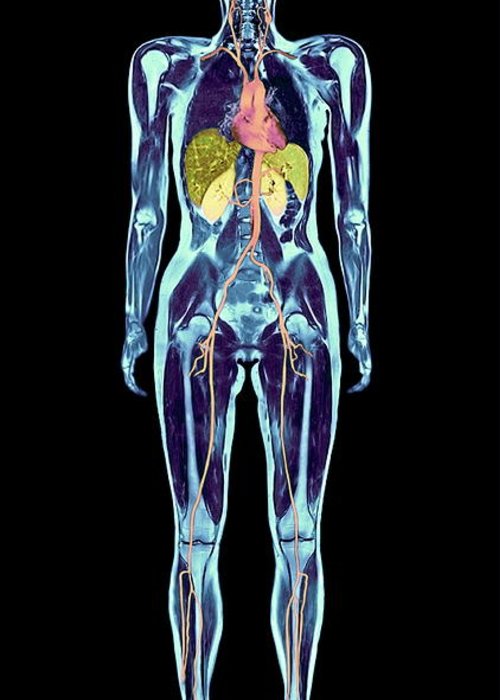COMPREHENSIVE BODY CHECK UP IS ESSENTIAL, DO YOU KNOW?
Health check-ups also known as medical check-ups or physical examinations, refer to a series of medical tests, screenings, and assessments conducted to evaluate a person’s overall health status and detect any potential health issues or risk factors. These check-ups are usually performed by healthcare professionals, such as; Doctors, Nurses, or Specialists. Health check-ups are preventive in nature and aim to identify health problems at early stage when they may be more manageable or treatable. They serve as proactive measures to maintain and promote good health, even in the absence of noticeable symptoms.

Individuals can understand their health status, track changes over time, and take required steps to manage or avoid illnesses with the aid of routine check-ups. The precise elements of a health examination may change depending on a number of variables, including age, gender, medical history, and personal risk factors.
However, typical components of medical examinations include: One of the aspects that a healthcare provider should take into account is the medical history of the patient and their family, as well as their present symptoms, lifestyle choices, and prescription usage.
A comprehensive assessment of the body’s systems that includes taking vital signs including blood pressure, temperature, and heartbeat as well as listening to the heart and lungs, testing reflexes, and assessing general physical health.
Test And Check Ups That Aids organ Performance
Blood, urine, and occasionally stool samples may be obtained for a variety of laboratory testing. These tests can aid in evaluating organ performance, identifying dietary deficiencies, detecting infections, assessing blood sugar and cholesterol levels, and screening for particular disorders. Imaging tests like X-rays, ultrasounds, CT scans, or MRI scans may be advised to thoroughly investigate particular bodily areas or systems, depending on the patient’s needs.
Cancer screenings which have to do with certain age and gender-specific cancer screenings such as; mammograms for breast cancer, Pap tests for cervical cancer, or colonoscopies for colorectal cancer.
Vaccinations is another element under this element we have; recommendations for immunizations or booster shots may be given to ensure protection against common infectious diseases. Lifestyle counselling as another element, Healthcare providers often provide guidance and counselling regarding healthy lifestyle practices, such as diet, exercise, stress management, and tobacco or alcohol cessation.
Medical health check-ups are essential for maintaining overall health and well-being. They involve a series of tests, examinations, and consultations with healthcare professionals to assess an individual’s current health status and detect any potential health issues. Here are some reasons why regular medical health check-ups are important:
The Significance of Regular Medical Exams
- Early Detection of Health Issues: Regular check-ups can help identify health problems at an early stage when they are more treatable. Many diseases, such as cancer, cardiovascular diseases, and diabetes, often show minimal or no symptoms in the initial stages. Routine screenings and diagnostic tests conducted during check-ups can detect these conditions early, allowing for prompt intervention and better treatment outcomes.
- Prevention and Health Maintenance: Health check-ups provide an opportunity for healthcare professionals to evaluate an individual’s risk factors for various diseases and provide personalized advice on preventive measures. Lifestyle modifications, such as dietary changes, exercise routines, and smoking cessation, can be recommended to maintain good health and reduce the risk of chronic illnesses.

- Monitoring Existing Conditions: Regular check-ups assist those who have already received a diagnosis in tracking the disease’s development and gauging how well the current course of treatment is working. If necessary, dose or therapy changes can be made to ensure the best possible management of the illness.
- Health Education and Counseling: Health check-ups offer a platform for healthcare professionals to educate individuals about healthy lifestyle choices, disease prevention, and self-care practices. They can provide valuable information and guidance on topics like nutrition, physical activity, stress management, and mental health. Counselling sessions during check-ups can address any concerns or queries individuals may have regarding their health.
- Establishing Baseline Health Parameters: By conducting various tests and measurements during check-ups, healthcare professionals establish a baseline of an individual’s health parameters, such as blood pressure, cholesterol levels, body mass index (BMI), and blood sugar levels. These baselines serve as reference points for future evaluations and comparisons, helping to track changes and identify deviations from normal ranges.
- Overall Well-being and Peace of Mind: Knowing that one is actively looking after their health through routine checkups helps one feel better. By making people aware of their current health status, they can empower people to take charge of their own health, ease anxiety, and provide peace of mind
Picture Credit:
Fine Art America | https://fineartamerica.com/featured/full-body-scan-mri-scan-volker-steger.html?product=greeting-card
Alpha Laboratories | https://www.alphalabs.co.uk/diagnostic-products/immunochemistry/specific-organ-function




